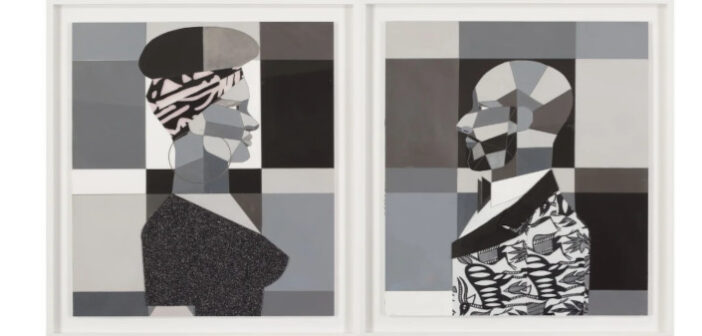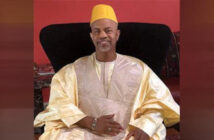The Dean Collection, which includes several African artists from the continent and the diaspora, will be on display to the public for the first time after the American power couple spent years acquiring works by Black artists.
Following the success of its Africa Fashion exhibition, the Brooklyn Museum in New York City is always striving to increase the collection of works by Black and African artists worldwide.
Giants: Art from the Dean Collection of Swizz Beatz and Alicia Keys is the first major exhibition of the couple’s world-class collection of multigenerational Black diasporic artists. The historic location is partnering with legendary American artists Swizz Beatz (birth name Kasseem Dean) and his fifteen-time Grammy-award winning wife Alicia Keys.

Amy Sherald, Deliverance (2022). Oil on linen. Each 274.8 x 315.5 cm. The Dean Collection. Courtesy Swizz Beatz and Alicia Keys. © Amy Sherald. Courtesy Amy Sherald and Hauser & Wirth. Photo Credit: Joseph Hyde.
The exhibition, scheduled to take place from February 10 to July 7, 2024, aims to provide visitors with an unparalleled glimpse into the various artistic interpretations that have contributed to the Deans’ self-discovery and cultural understanding, while also serving as a representation of the Black experience worldwide. It opens with a tribute to the legendary duo, the creative icons who helped them achieve their own success, and the desire to support other Black artists going through same struggles.
In a 2018 interview with Cultured, Beatz stated, “The collection started not just because we’re art lovers, but also because there are not enough people of colour collecting artists of colour.” And with their more than two decades of support for Black art, the couple has really been putting their money where their mouth is.
The exhibition, according to its name, will feature pieces by some of the most avant-garde and influential artists in the world today. From American masters like Jean-Michel Basquiat and the late Kwame Brathwaite to Botswana’s brilliant Meleko Mokgosi and Obama portraitist Kehinde Wiley, Giants aims to carry on the conversation about Black achievement and societal inequities. Reintroducing the artists to society is one approach to demonstrate how little has changed or how far we’ve come from the majority, if not all, of them who used their work to remark on and critique how the world was managed during their lifetimes.
All of this is a part of the museum’s dedication to growing its collection of African art, which the Deans will further bolster when they donate a selection of artwork to the institution in honour of the show.




